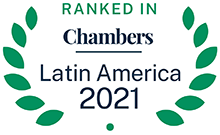-
About the firm
- The Firm
-
Members
- Our Members
Attorneys
- Henry Lang
- Juan Carlos Cersosimo
- Roberto Araya
- Mónica Romero
- Milena Jaikel
Support Personnel
- Edelweiss Schumacher
- Alejandro Marín
- Hermelinda Colville
-
How to...
- Latest News
- Contact Us
- Español
- Français
-
Expertise areas
-
Real Estate
-
Incorporation
-
Immigration
-
Litigation
-
Labor Law
-
Free Trade Zones
-
Trademarks
-

Leases

LEASE AGREEMENTS IN COSTA RICA. THE TENANT'S PERSPECTIVE
The first thing to be aware of when leasing in Costa Rica is that the regulations applicable to such relationships tend to be somehow different to the ones you may encounter in other jurisdictions.
In many cases, such rules cannot be waived, and even if the parties negotiate something different in the contract, that agreement might not always be valid. In other situations, it is important to know what the law establishes on specific matters in the event the parties do not cover such issues in the agreement and, if such default provisions do not meet your best interest, to expressly agree on something different.
As follows, we will try to cover several of the main aspects that a future tenant should take into account and be aware of when engaging in a lease relationship in Costa Rica. Most of these issues apply whether the agreement is for housing or for business purposes.
Written Agreement
Although it is not required by the law, it is advisable to have a written agreement reflecting the applicable terms and conditions for the lease. In this case, the parties do not leave the interpretation or setting of aspects as important as anticipated termination, guarantee deposit, payment of utilities, improvements, repairs, inspections and notices, among others, to the default legal principles or to the Courts.
If a written agreement was not made, any means of proof, as long as they are acceptable and clear (i.e. receipts for rent) are sufficient to create basic rights in favor of the tenant.
Identification Of The Property
By law, every property being subject to a lease agreement must be identified with its “folio real” registration number, which is the identification given to it by the Public Register. The inclusion of this information is mandatory and allows the future tenant to perform a title search which will guarantee that his landlord has a legal right to rent the property as well as that there are no obstacles for the agreement to take place.
Although not legally mandatory, it is strongly advised to identify the leased premises with as much detail as possible, including their exact measure and location. In many cases, a simple blue print of the place is very helpful as well. Indication of parking spaces and their location, as well as an express statement that they are an essential part of the contract is suggested as well.
Use Of The Premises
Local lease contracts usually restrict the use of the premises for specific purposes. In the case of housing, it is standard practice that no commercial activities can be performed. In business leases, a concrete object is included, which in many cases is very restrictive so it is in the tenant’s best interest to insist on establishing a description of use that covers the full extent of the activities to be performed or otherwise, be subject to an anticipated termination of the agreement and the payment of damages to the owner.
Rent
Rent can be expressed in local or foreign currency. If it is not indicated in colones, the tenant has the right to pay in local funds calculated at the exchange rate established by the Costa Rican Central Bank for the sale of the currency in which the amount of the lease was established contractually, on the day of payment.
When rent is fixed in dollars or in any other foreign currency, yearly adjustments are allowed only for commercial leases and prohibited in agreements for housing purposes. Usually, if rent is expressed in dollars, even when allowed, increases of the amount of the lease are lower than the ones for colones based leases and in many of such cases, since protection against devaluation is guaranteed, the tenant is able to have the landlord commit to a flat amount for the full term of the contract.
A receipt for the rent should be expected and becomes an important proof of payment as well as of the contractual relationship between the parties.
Utilities are usually paid by the tenant but special attention should be given to have separate meters for them or otherwise probably be subject to abuse by the landlord on the allocation of the amounts. In the case of maintenance fees, if applicable, a fixed amount or percentage, or at least a maximum, should be negotiated.
Term
By law, leases cannot be agreed for terms shorter than three years. This provision works to the advantage of the tenant since although it is not possible to establish an earlier termination by the landlord it is fully acceptable to have such a clause in favor of the tenant, who, depending on what is agreed, would be able to request an anticipated termination with an advance notice and/or the payment of a penalty or loss of the security deposit.
If a contract has no advance termination provision and the tenant proceeds with an anticipated end without a just cause for it, he will be liable for the payment of the agreed rent for the original term of the contract.
Renewal clauses are possible and generally require a substantial increase of the previously agreed rent.
Guarantee Deposit
It is very common for the landlord to request a guarantee deposit to respond for damages to the property, unpaid utility bills and, in some cases, unpaid rent. This deposit is generally set at the equivalent of one or two months of rent.
Usually, higher deposit amounts should be avoided and provisions for the prompt return of such moneys after termination of the lease and objective determination of their use are very advisable.
Condition Of The Premises
Lease contracts in Costa Rica usually describe the condition in which the premises are received by the tenant. It is extremely important to make sure that such condition reflects the actual shape of the property, since at the end of the lease there will be an obligation to return it as received, with the exception of normal wear and tear.
Improvements are generally accepted only with the express consent from the owner and it is convenient to include, when signing the contract, the authorization to proceed with any of such that the tenant already has projected. Once made, these changes and additions become part of the leased premises and with the exception of those that can be separated from the property without damaging it –and in this case only if expressly agreed in the contract- are owned by the landlord.
Build-up by the owner is acceptable and can be included in the contract, although it is important to include as much details as possible on it to make sure that the final result will meet the tenant’s needs. Specific timeframes for this construction to happen are also to be seriously taken into account.
Inspections
Inspections by the owner are normally part of local lease contracts. It is advisable to agree in writing that such visits must have a reasonable periodicity and, in the case of commercial leases, cannot interfere with normal business operations of the tenant.
Assignment And Subletting
It is usual to have an express prohibition to assign the lease contract or sublet the premises. In the case of business leases, we recommend to expressly waive this prohibition in the case of transactions with affiliate companies.
Notifications
Although the tenant usually receives notices on the leased premises, there is rarely an indication of where the landlord will receive such. It is advisable to include such a statement, and for the owner’s address to be very specific, so communications relevant to the lease relationship are effectively made.
There are many other issues and provisions to be taken into account when negotiating leases in Costa Rica. It is important for the tenant to know its legal rights and especially what provisions can be negotiated and to what extent. An effort to do so will produce a much more advantageous, long lasting and profitable relationship.
© All rights reserved







